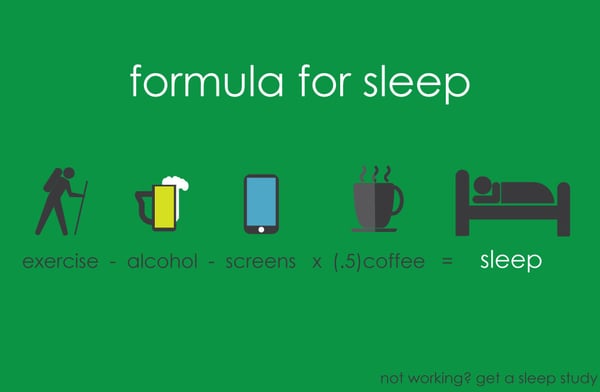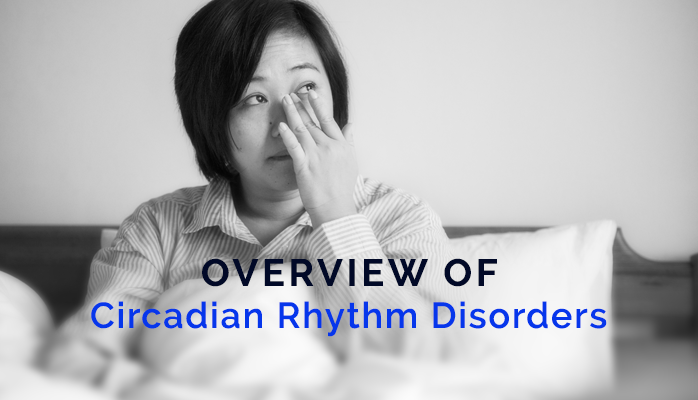What is Your Circadian Rhythm?
Your circadian rhythm is your innate biological clock that helps your body function in patterns and rhythms. It regulates your natural sleep schedule, and is closely tied to both melatonin, the sleep hormone, and changes in light.
Your biological sleep clock exists in a part of your brain called the suprachiasmatic nucleus of the hypothalamus, which sits right behind the nerves of your eyes – hence why your clock is sensitive to light.
It is crucial for you to understand your circadian rhythm in order to build healthy sleeping habits.
What are Circadian Rhythm Disorders?
Circadian rhythm disorders are exactly what they sound like: a disruption in your natural biological clock’s rhythm. The most common ones are [American Sleep Association]:
- Shift work sleep disorder – when your sleep schedule is erratic due to working non-conventional days and hours
- Jet lag – when your sleep schedule is thrown off due to time changes when traveling
- Delayed sleep phase syndrome – when you are unable to fall asleep at what are considered conventional bed times
- Non-24 hour sleep-wake disorder – when your biological clock does not work on a 24 hour cycle
- Advanced sleep phase disorder – when you have problems staying awake during normal/conventional times
What are Causes of Circadian Rhythm Disorders?
Usually circadian rhythm disorders are often in response to external factors such as:
- Extreme light conditions
- Extreme dark conditions
- Shift work
- A non-standard sleep schedule that conflicts with your work schedule, such as needing to start work at 7am but getting naturally tired at 2am
- Lifestyle choices
The first three points probably caught your eye because they are particularly important to Alaskans. Alaska has a high number of shift workers and has both extreme lighting and darkness conditions.
Symptoms of Circadian Rhythm Disorders
Symptoms of circadian rhythm disorders manifest in a frustrating paradox: just when you crave sleep the most, it becomes elusive. These disorders can bring about a range of common symptoms, including daytime fatigue and lethargy, impaired cognitive performance, memory troubles, difficulty concentrating, brain fog, trouble falling asleep, and irritability. Additionally, individuals may experience symptoms that align with those of insomnia and sleep deprivation..
Contributing Factors to Circadian Rhythm Disorders
A number factors contribute to developing a circadian rhythm disorder, some of which are unique to the modern age. These include:
- Computer/tablet/phone use before bed
- Television watching before bed
- Shift work
- Drinking too much coffee
- Drinking too much alcohol before bed
- Shift work
- Working at a job with hours that don’t sync with your natural clock
- Traveling
How to Treat Circadian Rhythm Disorders?

It may or may not be easy to treat or avoid circadian rhythm disorders – it just depends on your circumstance. Some best practices to avoid or treat these disorders are:
- Try not to work a number of night shifts in a row
- Avoid too much alcohol before bed
- Avoid too much coffee
- Before travel, try to adjust your eating and sleep cycle
- Try and work hours that sync with your natural sleep schedule
Most importantly, having a solid sleep schedule is one of your surest ways to get consistent sleep (at least, as much as possible). Good sleep schedules habits may replace sleep medicine supplementation in some cases, and helps prevent you from the nasty side effects of circadian rhythm disorders
If you are a struggling from any of issues related to circadian rhythm disorders, please reach out to use right away. Start by taking this free online sleep test.


